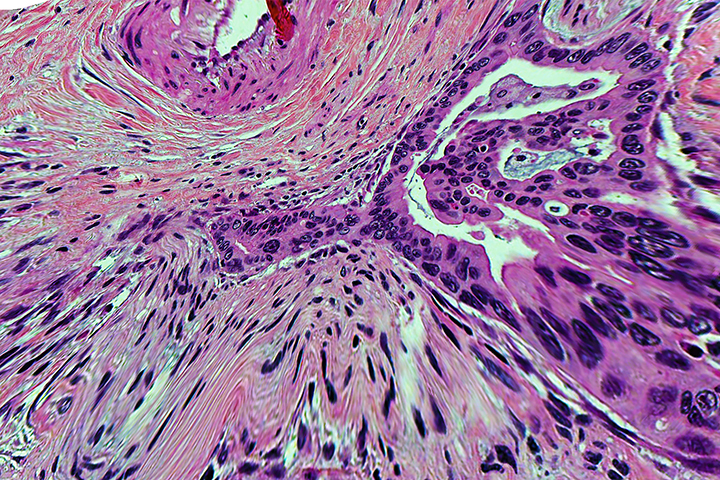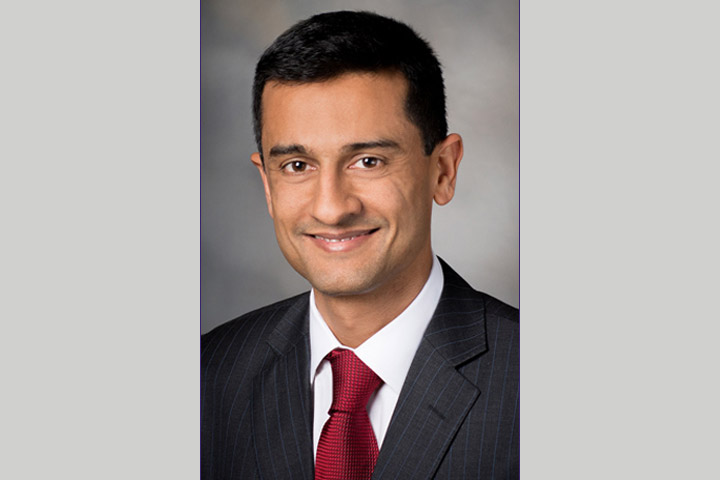Questions to Ask Before You Begin Chemotherapy

Pancreatic cancer treatment is complex, and navigating chemotherapy includes plenty of twists, turns, roadblocks, and detours.
But asking the right questions before you begin chemotherapy can help ensure you’re on the best path to fight the disease effectively. “When you have a difficult diagnosis like pancreatic cancer, it’s important to gather information and connect with resources that can help you manage the disease itself, and its treatments,” says Andrew Hendifar, M.D., M.P.H., co-director of pancreas oncology and gastrointestinal and neuroendocrine oncology at Samuel Oschin Comprehensive Cancer Center at Cedars-Sinai Medical Center, Los Angeles.
Nine Important Chemotherapy Questions
No matter which regimen your doctor selects first, ask your physician these nine questions before you begin any chemotherapy treatment:
1. What is the goal of treatment?
Most doctors have a specific goal in mind when they select a particular regimen for pancreatic cancer. Maybe they’re using chemotherapy to shrink your tumor so you’re eligible for surgery. Or maybe they’re trying to give you more time through chemotherapy. No matter what the goal of this particular treatment, it’s important to understand what the objectives are before you begin.
2. Why did you choose this particular regimen?
Two of the most commonly-used chemotherapy regimens are the combination of gemcitabine and nab-paclitaxel (Abraxane) or FOLFIRINOX, a combination of four chemotherapy agents: FOL (leucovorin, or folinic acid), F (fluorouracil, or 5-FU), IRIN (irinotecan), OX (oxaliplatin). While each of these treatments have unique benefits, doctors often select a regimen based on patient preference.
“With gemcitabine, you receive treatment once a week for four hours at a time,” explains Hendifar. “With FOLFIRINOX, you get infused with 5-FU through a port.” You go home with a portable pump that continues to deliver chemotherapy for up to two days. According to Hendifar, the choice of regimen isn’t critical since you can switch if the treatment is not effective. The goal is to tailor treatment to your lifestyle as much as possible.
3. What side effects can I expect?
Before you begin a chemotherapy regimen, it’s important to talk to your doctor about potential side effects—both those that happen immediately after your first treatment and those that may not show up until months or even years down the line.
4. Am I eligible to participate in clinical trials?
Clinical trials are important. They’re not only a great way to access groundbreaking research-based therapies at a fraction of the cost, but they also afford you an opportunity to help improve the landscape for future pancreatic cancer patients. “Patients who participate in clinical trials also tend to do better because there are more eyes on them, including the clinical team and the research team,” says Hendifar.
5. Should I see a genetic counselor?
“Current guidelines recommend genetic counseling for all patients with pancreatic cancer,” Hendifar explains. “Inherited risks for pancreatic cancer have been underreported and underappreciated. Yet, between 5 and 8 percent of patients may have a genetic predisposition for pancreatic cancer.”
Results of genetic testing may also have therapy indications. For example, if doctors discover that you have a certain genetic mutation, you may be a candidate for specific treatments, such as PARP inhibitors or platinum-based chemotherapy agents, both of which work better in BRCA-related cancers. Mutations in the BRCA gene not only play a role in breast and ovarian cancers, but also in pancreatic cancer. For these reasons, and others, genetics testing is standard of care for pancreatic cancer patients.
The goal for genetic testing is, if possible, to find a treatment that best fits your genetic profile.
6. Should I meet with a registered dietitian?
Up to 90 percent of patients with pancreatic cancer lose weight after diagnosis and while navigating treatment. Meeting with a registered dietitian can help you learn how to maximize your nutrient intake while also helping you manage side effects, such as nausea and poor appetite.
7. Are pancreatic enzymes appropriate for me?
Pancreatic cancer may cause changes in the digestive tract that interfere with your ability to digest food. If you don’t have enough pancreatic enzymes to break down fat, protein, and carbohydrates, you may suffer from weight loss, cramping, and indigestion. That’s where supplemental pancreatic enzymes can help. They replace lost pancreatic enzymes and help prevent weight loss and digestive complaints.
8. Should I start exercising?
A growing body of research suggests that getting regular exercise before, during, and after treatment can improve outcomes for patients with pancreatic cancer. Talk to your doctor about meeting with a physical therapist to help you get on a program that makes sense for your particular circumstances. They may be able to refer you to a “prehabilitation program” before you begin therapy.
While it may seem counterintuitive to exercise during pancreatic cancer diagnosis and treatment, studies suggest regular physical activity can help counteract fatigue, improve sleep, and reduce anxiety.
9. How do I know if the chemo is working?
In some cases, you may have some early indicators that chemotherapy is working. A few leads:
- Physical symptoms improve. Despite side effects from chemotherapy, you might notice improvements in your overall health and wellbeing.
- Blood tests. Lab work can reveal markers that indicate changes in disease activity. Find out the key markers from your oncologist so you can understand what the changes mean. For example, CA 19-9 levels are tracked for pancreatic cancer. Higher numbers indicate active disease, so you want to see the CA 19-9 number decrease. If it does, it’s reasonable to assume the treatment is working.
- Imaging. Imaging tests, such as CT scans, are the best way to determine whether chemotherapy is working. If the scan reveals cancer growth, your doctor may decide to change your treatment protocol.
A Family Affair
This is just a small sampling of the questions you should ask your healthcare team before beginning chemotherapy. Others that top the list include: “Who should I call with questions?” “What support services are available to me and my family?” and “How will treatment affect my daily life?”
The best way to ensure you have the information you need to make informed decisions is to have regular conversations with your healthcare team and to bring your family members or loved ones along—not only for support, but also to take notes or record conversations so you are clear about your treatment protocol and your doctor’s recommendations.
“It’s really like two different families coming together—the healthcare team and the patient’s family,” says Hendifar. “That relationship takes time to build.” But the payoff can help patients weather the storm of tests, treatments, and protocols.






